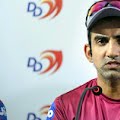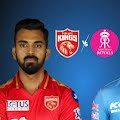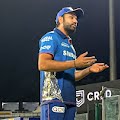After 45 days and 70 matches, we have finally reached the business end of Indian Premier League season four. This year’s cash-rich T20 tournament turned out to be the most evenly contested affair with evenly matched teams breathing down each other’s neck to grab the top four spot. And after numerous tense moments and nail-biting encounters, four metros of the country booked their place in the knock-outs.
Until last year, top four teams played against each other in a semi-final format and the winners of the semis, clashed in the finals. While the losing teams played for the Champions League spot. It’s been the most uncomplicated format which we all have been used to over the years. But this time, fans are set to witness a twist in the climax. The two finalist of the showpiece event will be decided by a ‘playoffs’ format that the IPL has decided to incorporate this year.
- The top two teams on the table (Bangalore & Chennai) will clash with each other in what is technically called ‘1st Qualifier’. The winner of this match will directly progress to the final.
- The other two teams (Mumbai & Kolkata) will play each other in what is called as the ‘Eliminator’ the team that loses here will be eliminated, while the winning team will have to overcome one more hurdle.
- The Losing team from the 1st Qualifier will play the winner of the ‘Eliminator’ in what is termed as the 2nd Qualifier. The winner of this match will take on the winner of the 1st Qualifier in the title encounter on May 28 at the MA Chidambaram Stadium in Chennai.
In simple words, the top two teams at the end of the round-robin stage will get two shots to make it to the final. While the third and the fourth team will have to prove their worth twice before they get a shot at the title.
One might find the new format a bit complicated to take it at once but when you give it a second thought you will probably realise why this format is welcomed by players as well as cricket pundits. From the teams point of view if you see the new format justifies its introduction.
What this means is if you consider the earlier tournaments it was not necessary the most consistent team lifted the trophy. A team may win all their league matches but one slip in the knock-out and the cup slipped away. That is what exactly happened to Delhi Daredevils in IPL 2009 in South Africa.
Delhi, with 10 wins form their 14 league matches topped the table. The Virender Sehwag led team were undoubtedly the most consistent team with Chennai well three points behind. They were to play a lowly Deccan Chargers in the semis.
The Hyderabad based team had scrapped through to reach the semis finishing fourth on the table. While Delhi had outclassed teams on their way to the knock-outs and were expected to breeze through to the final. But then, the unexpected happened. The team from the capital came against a storm named Adam Gilchrist, whose blistering 35 balls 85 blew the Daredevils out of the tournament.
In other words, this format rewards consistency in 20-20, where one bad day or a one breezy innings for an opposition player can take the match away. Now the top two teams would get a chance to regroup even if they stumble at the first go.
The other advantage of this format is that it provides extra incentive for the teams to finish in the top two rather than just aim at scarping in the top four. For example; during the current season, Punjab had an outside chance to qualify for the playoffs unsettling what seemed almost confirmed top four. But their loss to Deccan meant that Bangalore, Chennai, Mumbai and Kolkata held on to make it to the playoffs. The remaining matches would have been inconsequential in the previous season. But this time round, captains were eager to make it to the top two, making every match competitive.
Once the playoffs get going form today onwards, viewers would get a feel of its uniqueness. The format adds more spice to the already exciting tournament and is definitely here to stay.
IPL Playoffs schedule
Tuesday: May 24
Qualifier 1: Royal Challengers Bangalore vs Chennai Super Kings
Wednesday: May 25
Eliminator: Mumbai Indians vs Kolkata Knight Riders
Friday: May 27
Qualifier 2: Loser of Qualifier 1 vs Winner of Eliminator
Saturday: May 28
Final: Winner of Qualifier 1 vs Winner of Qualifier 2
IPL 2011: Why the new format of the IPL playoffs use
Tags: IPL T20 2011, IPL 4, IPL
Published on: May 25, 2011
After 45 days and 70 matches, we have finally reached the business end of Indian Premier League season four. This year’s cash-rich T20 tournament turned out to be the most evenly contested affair with evenly matched teams
Related News
 IPL is the best thing to ...IPL is the best thing to happen to Indian cricket: ...Nov 28, 2022
IPL is the best thing to ...IPL is the best thing to happen to Indian cricket: ...Nov 28, 2022 IPL 2021: If any team deserved ...IPL 2021: If any team deserved to win this year, ...Oct 16, 2021
IPL 2021: If any team deserved ...IPL 2021: If any team deserved to win this year, ...Oct 16, 2021 IPL 2021 Match 39 RCB vs ...IPL 2021 Match 39 RCB vs MI: Preview, predicted XI, ...Sep 26, 2021
IPL 2021 Match 39 RCB vs ...IPL 2021 Match 39 RCB vs MI: Preview, predicted XI, ...Sep 26, 2021 IPL 2021 Match 38 CSK vs ...IPL 2021 Match 38 CSK vs KKR: Preview, predicted XI, ...Sep 26, 2021
IPL 2021 Match 38 CSK vs ...IPL 2021 Match 38 CSK vs KKR: Preview, predicted XI, ...Sep 26, 2021 IPL 2021 Match 32 PBKS vs ...IPL 2021 Match 32 PBKS vs RR: Preview, predicted playing ...Sep 21, 2021
IPL 2021 Match 32 PBKS vs ...IPL 2021 Match 32 PBKS vs RR: Preview, predicted playing ...Sep 21, 2021 IPL 2021 Match 30 CSK vs ...IPL 2021 Match 30 CSK vs MI: Preview, predicted playing ...Sep 19, 2021
IPL 2021 Match 30 CSK vs ...IPL 2021 Match 30 CSK vs MI: Preview, predicted playing ...Sep 19, 2021 IPL T20 2021 all Teams, Players ...IPL T20 2021 all Teams, Players List and SquadsApr 15, 2021
IPL T20 2021 all Teams, Players ...IPL T20 2021 all Teams, Players List and SquadsApr 15, 2021 Upcoming IPL will be a good ...Upcoming IPL will be a good preparation for the T20 ...Mar 25, 2021
Upcoming IPL will be a good ...Upcoming IPL will be a good preparation for the T20 ...Mar 25, 2021 Suspension of Vivo's ties with IPL ...Suspension of Vivo's ties with IPL a blip not financial ...Aug 10, 2020
Suspension of Vivo's ties with IPL ...Suspension of Vivo's ties with IPL a blip not financial ...Aug 10, 2020 IPL should not be damaged, let ...IPL should not be damaged, let the World Cup go ...Jul 24, 2020
IPL should not be damaged, let ...IPL should not be damaged, let the World Cup go ...Jul 24, 2020 Dravid cautions against rushing players back ...Dravid cautions against rushing players back into cricket, says better ...Jun 22, 2020
Dravid cautions against rushing players back ...Dravid cautions against rushing players back into cricket, says better ...Jun 22, 2020 If World T20 can't go ahead, ...If World T20 can't go ahead, neither should IPL: Allan ...May 23, 2020
If World T20 can't go ahead, ...If World T20 can't go ahead, neither should IPL: Allan ...May 23, 2020


